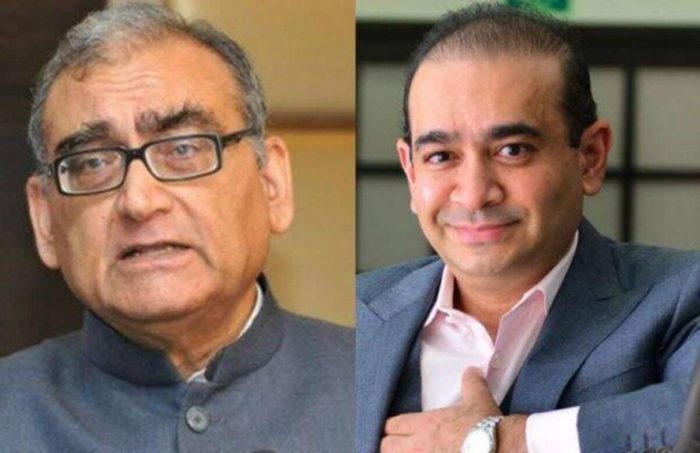On Thursday, UK judge Sam Gooze slammed the evidence presented by retired judges Abhay Thipsay & Markandey Katju while arguing in favour of scam-accused diamantaire Nirav Modi. Thipsay had claimed that the evidence against Nirav Modi would not meet the criteria of cheating and criminal breach of trust under Indian law.
A UK magistrates’ court on Thursday ordered the extradition of fugitive diamantaire Nirav Modi, who is wanted in India in the Punjab National Bank (PNB) scam case.
“I am satisfied on the evidence that a prima facie case of fraud and money laundering is established,” said judge Samuel Goozee, as he read out parts of his judgment in court and concluded that he will send his ruling to the UK’s secretary of state, Priti Patel.
For a requesting state to succeed in extradition, it must win on all counts; the requested person looking to block extradition needs to win on just one. That the Indian government won on all counts in securing an order to extradite Nirav Modi shows India hitting the winning path at last in an English extradition court.
Referring to a presser by law minister Ravi Shankar Prasad on May 13, 2020, during which he allegedly made derogatory remarks about Thipsay and said that his evidence was directed by Congress, Goozée said, “It was clear in my view that it was a press conference given in a purely political context, albeit as the Minister of Justice, in the context of BJP making political commentary about the congress. That, in turn unsurprisingly garnered significant attention and headlines. I do not concern myself with the political commentary and opinions of politicians in India about Justice Thipsay’s evidence. It is inevitable he could have foreseen his affiliation to the Congress party may attract interest.”
He was equally dismissive of former Supreme Court judge Markandey Katju’s argument that the apex court in India was doing the bidding of the Centre and that 50% of judges in India were corrupt. Katju also said that Nirav was being blamed for the collapse of the Indian economy as “the Jew of India”, which Goozée described as “astonishing, inappropriate and grossly insensitive comparisons”.
“Despite having been a former Supreme Court judge in India until his retirement in 2011, his evidence was in my assessment less than objective and reliable,” Goozée said. The UK judge also referred to instances of Katju’s remarks about a former CJI.
“Despite being critical of a former Chief Justice passing a verdict in a Supreme Court case, (allegedly) in exchange for a nomination to the Upper House of House of Parliament in India on a quid pro quo basis, suggesting collusion and corruption, Justice Katju himself secured appointment by the government to the post of chairman of the Press Council of India following his own retirement,” he said.
While rejecting Nirav Modi’s challenge to the extradition request of Government of India in the Rs 14,000 crore PNB fraud case, a court in the United Kingdom discarded the opinon given by former Supreme Court judge Justice Markandey Katju regarding chances of fair trial rights being denied to the fugitive diamond merchant on account of lack of judicial independence. Justice Katju had deposed before the UK Court as an expert witness for Modi, opposing the Government of India’s plea for extradition on the ground that he was unlikely to receive a “free and fair trial in India”. The written submission filed by him in the case states that Modi was subjected to “media trial” in India and that in such a “hostile atmosphere”, he was unlikely to receive a free and fair trial in India.
District Judge Sam Gooze of Westminster Court, London, who heard the Nirav Modi case, not only discarded Katju’s evidence but also made certain sharp observations against the former judge.





